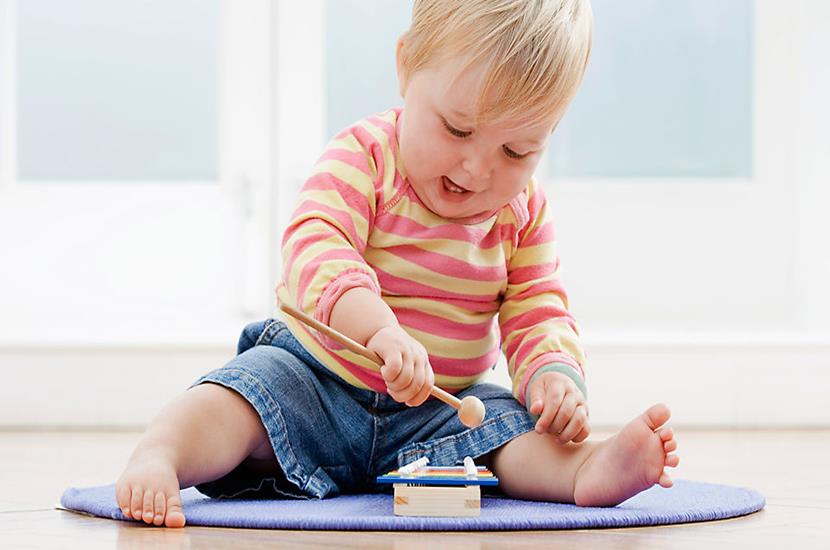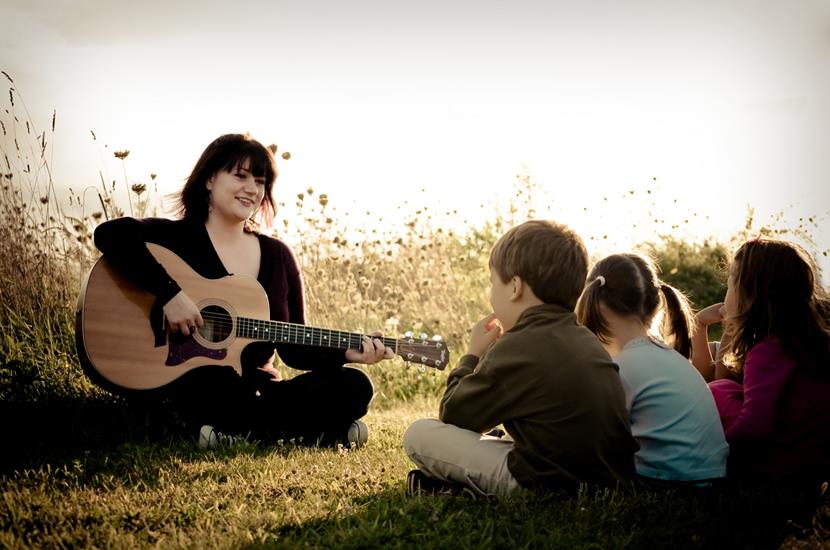
We could say that today, we haven't yet gotten the most out of music for a child's brain. It is curious how many mothers undoubtedly remember the habit of listening to Mozart or Bach throughout their pregnancy. It was during the 90s when various studies began to appear where it was said that this type of acoustic stimulation improved the intellectual development of children.
Now, the intelligence of our children depends on many more factors than the simple fact of applying headphones to our belly during pregnancy. When it comes to talking about music and its relationship with a child's brain, we must take into account several aspects. The child's contact with music should continue after birth, and as he grows up he should feel full freedom in choosing the genres that appeal to him. Furthermore, being "mere listeners" is not enough either. Music is lived, played, interacted with and invented. In "Madres Hoy» we give you all the information.
Music creates wonderful side effects on a child's brain
In today's society and in educational centers, the musical area is reserved most of the times for a subject in Primary and Secondary that is given a couple of hours a week, and where children learn to play a instrument, usually a flute. For many of them it is an unstimulating learning. However, when we enter the preschool classrooms, we discover the great pleasure of those 4 or 5-year-olds who anxiously await that moment when they have the opportunity to learn a new song.
If music is offered for what it is, a purely emotional experience, the imprint it will leave on their brains is wonderful. We have no more to do, for example, the incredible impact that hearing a melody of their time, a simple song or melody, has for an Alzheimer's patient.
Their dull faces light up again to reality to smile, sing, clap… The neural mechanisms that govern musical intelligence are linked to the emotions, and this is a weapon of power that we should channel and empower from early childhood.

Discover music through an instrument
Según un study carried out at Northwester University, Illinois, USA, it is not enough for children to listen to music. A strategic way to boost their brain development is by giving them an instrument.
- It is ideal for babies to have the classic xylophone, for example. Later, they can have their first approach to a violin, a piano, a cello ...
- Scientists tell us that when children approach an instrument and play with sounds, they experience and process its cadences, its different stimuli, potentiates in them what is called «neurophysiological distinction», which will better promote their development of the the language and a better deepening of the symbol system to improve reading.
From the Auditory Neuroscience Laboratory from Illinois also discovered that children's early approach to music through an instrument, in turn, allows for better development and connectivity in different neural areas:
- In the frontal and occipital cortex, a powerful connectivity is established that allows space-time processes to develop.
- Their capacity for abstraction and connection in turn with the stimuli that form their closest surroundings is also developed.
- It was also discovered that music and the ability to begin to interact with an instrument, favors the appearance of so-called alpha waves, very powerful to promote calm., tranquility and concentration. It is wonderful, there is no doubt.
- If the child also begins to study music from an early age, In turn, logical-mathematical reasoning and mental maps are favored. These skills are usually slightly complex throughout a child's school life, but if this first approach is carried out in such a playful and exciting way as it is through music, the learning takes place much better.

Music and emotions
Parents who transmit music to their children from a very early age as something normal, in the context of that day-to-day where daddy's favorite group always plays, the singer that mom likes the most, makes children approach these musical stimuli with curiosity and then with interest. To find your style, the music that defines you, that makes you feel good.
The grandfathers and grandmothersFor their part, they always teach songs to their grandchildren, it is a generational legacy from which they should benefit. Nor can we forget the educational resources where children learn new languages through music ... All of these are ideal strategies that we should complement with something as appropriate as children having at their disposal various instruments to play, to try, even if they are toys.
Little by little, and without our realizing it, they will learn to relax, to better connect with others through music. It is worth keeping in mind.
Music not only creates new and powerful neural patterns where different areas of the brain are connected to each other in a more efficient and harmonious way. To develop musical intelligence in a child is to invest in their emotions, it is to improve their memory (Remember that memory and emotions always go hand in hand), and it is above all, to offer you a personal resource through which to feel good, feel free and even enhance your creativity.

A baby who reaches out and enjoys music is a more curious child tomorrow. A curious child who enjoys creating and experimenting with music usually gives way to a teenager who manages his emotional world much better.
It is a form of expression, an exceptional way to channel anger, happiness, to connect with other people of your age and to find, why not, your own space where you can get to know yourself better. Bring your children closer to music from an early age, and at the same time allow them to feel free when it comes to choosing their own musical styles. It is a worthwhile experience.